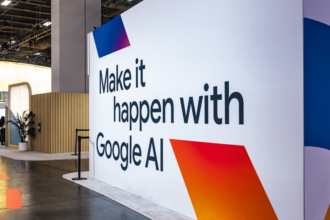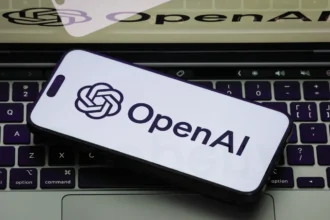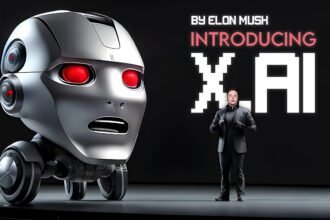Arm, the semiconductor design company, is teaming up with Meta to make its AI systems stronger: a move that comes at a time of unprecedented infrastructure buildout at the social media giant. As part of the partnership, Meta’s ranking and recommendation systems will shift to Arm’s Neoverse products, recently optimized for AI workloads in the cloud and other use cases.
“AI is changing the way people connect and build,” Santosh Janardhan, Meta’s head of infrastructure, said in a statement. “Working with Arm accelerates our ability to bring that innovation to the 3 billion people who use Meta’s products and technologies,” he said.
Best known for its mobile CPU designs, Arm’s GPU designs have generally been eclipsed by those from competitors like Nvidia. But Arm is now highlighting its edge in low-power applications.
“The next era of AI will be defined by providing efficiency at scale,” Arm’s chief executive, Rene Haas, said in a statement. “By working with Meta, we are bringing together Arm’s performance-per-watt leadership with Meta’s AI innovation.
The multiyear partnership — with an unspecified dollar amount but likely totaling billions of dollars over its duration — is increasing as Meta invests in greatly growing its data center network to accommodate what it expects to be a surge in demand for AI offerings.
One project, known as “Prometheus,” is expected to become operational with several gigawatts of power in 2027. The project is under construction in New Albany, Ohio and a 200 MW natural gas project is also being developed to directly support the power needs of the project.
There’s also Meta’s Data Center Park, with the code name of “Hyperion,” in northwest Louisiana, which is expected to offer 5 gigawatts of computational power on completion. Construction is likely to go on through 2030, though some parts could be completed before that.
Most crucially, Arm and Meta are not exchanging ownership stakes or major physical infrastructure — unlike a handful of other recent AI infrastructure deals. Nvidia has been especially active in its investments — it announced a phased $100 billion investment in OpenAI, and billion-dollar investments into Elon Musk’s xAI, Mira Murati’s Thinking Machines Lab and French AI lab Mistral.
A rival to Nvidia and Arm, AMD recently agreed to provide OpenAI with 6 gigawatts of compute, by comparison. OpenAI will also have the right to use a portion of tens of thousands of specialized processors that AMD plans to make available only for customers with which it has deals like this. And as part of its arrangement with AMD, OpenAI will be eligible to receive stock options in AMD worth as much as 10 percent of the company itself.




















